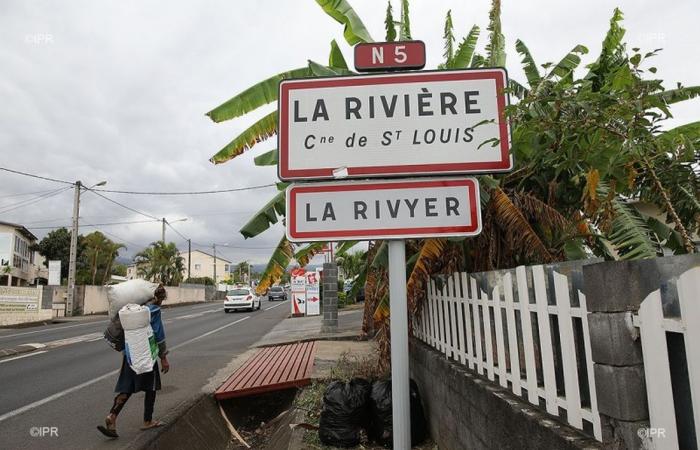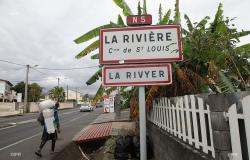
The creation of a 25th municipality in Reunion Island is a sea serpent that has been going on for almost 50 years! The project to create “La Rivière” was relaunched by the mayor of Saint-Louis, Juliana M’doihoma on October 1.
The end of the municipal council of the city of Saint-Louis, October 1, 2024, was marked by a declaration from Juliana M’doihoma. The mayor informed elected officials of significant progress in the resumption of work on the institutional emancipation of the River. Through his words, it is the creation of the 25th commune of Reunion which comes back to the forefront.
In the press release dated October 2, 2024, published by the municipal services of the city of Saint-Louis, the terms “division” or even “ 25th municipality » do not appear. And yet that is what it is all about. The day before the traditional municipal council was held. To conclude the debates, session chair Juliana M’Doihoma drew the attention of her audience to an item not included on the session’s agenda. The first Saint-Louis magistrate spoke of significant progress in the resumption of work on the institutional emancipation of the River.
Institutional emancipation of the River, the words are released. There is indeed talk of a return to the project to create the commune of La Rivière. Affirming to be fully aware of the existence of two entities with different identities, the municipal team shows its desire to restart the division process.
To carry out its approach and avoid any further disappointment in this matter, the town hall decides to call on a firm of experts. It is up to him to carry out a feasibility and impact study to establish and specify the trajectory of the project.
The firm of experts responsible for this mission will be appointed before the end of October. Its conclusions are expected in April 2025. These analyzes will be decisive for the follow-up that the municipal majority will give to this new division project.
It will be about building a division project that is a three-fold winner: a winner for Saint-Louis, a winner for La Rivière and a winner for the respective populations.
Juliana M’Doihoma, mayor of Saint-Louis
The designated experts will have to familiarize themselves with the existing data : financial, legal and economic
– Mobilize appropriate means to update the various reports (financial and tax analysis, distribution of goods, people and materials)
– Request state services for support on the process, modalities and timetable
– Organize a major citizen consultation at the level of the Municipality (principle, scope)
And finally propose an organization responsible for administrative and political management of the project. He will have to carry out a complete study in order to update 15-year-old data.
Starting the division process from scratch will not be without impact for the population. As in 2009, it will be called upon to give its opinion, to decide in favor or not of a division.
•
©Photo from the City of Saint-Louis
At that time, on March 29, 2009, 52.6% of Saint-Louis and Rivierois residents spoke in favor of a separation of the two territories. Consulted on December 2, 2012, the populations of Makes and Bois de Nèfles Coco had chosen their destiny. The Hauts district of Saint-Louis intended to keep its Saint-Louis identity while the Bois de Nèfles Coco sector showed a preference for the River. The data from the ballot boxes made it possible to establish a division and determine the geographical limits of the two territories.
Things seemed to have been agreed and the matter was over. The division project then went through all the administrative stages until the famous March 17, 2017. A historic day for Rivierois supporters of separation.
The prefect at the time, Dominique Sorain, signed the decree ratifying the creation of the 25th commune. This decree provides that the commune of La Rivière will become a reality from 1is January 2018.
The Minister of Overseas Territories, Ericka Bareigts, carries the good word to the square in front of the annex town hall of La Rivière in the presence of Patrick Malet, mayor and shy supporter of the project.
Once the time of announcement has passed, the time of protest arrives. A resident of La Rivière and an elected official from the municipal majority oppose the split. They take the case to the administrative court. On December 7, 2017, the court annulled the prefectural decree you March 17.
This is another missed opportunity for all those who dreamed of independence and imagined themselves free from Saint-Louisian supervision.
To get a start on the explanation to the Rivièrois’ desire for separation, we must go back to… 1965. The commune of Saint-Louis, already deprived of the Etang Salé district since 1884, separated this time from its circus, Cilaos.
The next planing move is then intended for the Saint-Louis River sector.
To carry out the plan orchestrated by the leaders of the time (the mayor is Théophile Hoareau, elected from 1965 to 1971), a consultation was carried out with the Saint-Louis population. The administrators are invited to the town hall. They must answer yes or no to the question “for or against La Rivière commune.” » At the time, the No side won, with the help of the Reunion Communist Party.
At the time, the PCR was in a logic of conquest of territory.
Elie Hoarau, leader of the PCR
We are on the eve of important electoral deadlines. In the PCR’s crosshairs, the municipal elections of 1971. Paul Vergés’ party designated Christian Dambreville as standard bearer. With 54% of the votes, the doctor tipped the town into the hands of the communists. By refusing the division, the minority PCR in the vote on La Rivière succeeds in its bet: that of depriving the right of a new commune.
The Reunion Communist Party subsequently revised its position. He relaunched the debate in a concrete way under the mandate of Claude Hoarau, re-elected mayor in 2007. The process was launched, it would culminate ten years later with the signing of the decree ratifying the birth of the commune of La Rivière.
The opposition denounces a political maneuver. The APR (Action Populaire de La Réunion), a group founded by Claude Hoarau, who left the leadership of the PCR, denounces a political maneuver by the mayor of Saint-Louis.
She could have restarted the process a long time ago, as she had promised to the Rivièrois in 2020. She knows full well that it is impossible to do so for 2026. By August 31, 2025, the studies must be carried out and the file completed in its entirety. She knows full well that it’s impossible. She is dangling things at the dawn of an electoral campaign.
Fabrice Hoarau, APR general secretary
•
©Réunion La 1ère
Meeting the 1st contacted Juliana M’Doihoma, the mayor of Saint-Louis, to ask her in what state of mind she is relaunching and tackling this old sea serpent.
Meeting the 1st : After all the missed appointments, what pushes you to get back to work?
Julian M’Doihom : Today the commune has actually made progress on the subject of the institutional emancipation of La Rivière. This is a subject on which my team and I have a certain conviction. This is a subject on which we were committed to resuming work at the appropriate time in a serious and organized manner. Throughout the first part of our mandate, we have worked on what has been lacking in our municipality for too long between 2009 and 2019; namely to clean up the finances of the municipality. This is work which has just been recognized within the framework of the report of the regional chamber of accounts. We also devoted the first part of our mandate to consolidating, or even rebuilding, the foundations of the organization of the municipality. It seemed essential to me to be able to put the question of updating data on the subject of the creation of the municipality of La Rivière back on the municipal agenda. Among the data that should be updated is the way the population views the subject. We are almost 15 years after the first consultation which dates back to 2009.
Meeting the 1st : In terms of date, has the municipal majority set an objective? ? 2026 seems reasonable to you ?
Julian M’Doihom : On this subject, there are foundations that must be laid. We must have project management that protects the population from any new illusions. There was a prefectural decree which was taken in March 2017 with the creation of a municipality announced for the 1is January 2018. This order was annulled by the administrative court. Following this cancellation, it should be noted that neither the prefect, nor the municipality, nor the citizen groups appealed this decision. Today, in my approach, I really want us to do things without dangling things of which we cannot be certain. This is why we are returning to the basics. This AMO (Project Management Assistance) that we have just launched will allow us to be supported by experts. This project management assistance will guide us on the file and lead to a feasibility and impact study.
The question of the calendar is being worked on in parallel with this study and especially with the population.
Among the missions set for this AMO, there is the definition of the most appropriate modalities for a new consultation with the population.
The other prerequisite that must be made is that I think that the subject has suffered too much in the past from political exploitation. Today in my approach, in the commitments I made, I worked for territorial equity. I have an approach that aims to be responsible and my calendar is not at all an electoral calendar. I have no electoral emergency to satisfy. My timetable is that of reason and the one that will emerge from the construction with the population, since it is above all the opinion of the population which will take precedence.
Meeting the 1st : You say triple winner; the two new entities but also the population through possible tax cuts for taxpayers in the two territories?
Julian M’Doihom : When I say that this subject must be a triple win, it is true that I have always said that this institutional emancipation must be carried out while being viable for both territories, but also viable for each of the populations. This is the very meaning of the feasibility study of impact and updating of data.
There is a financial and tax analysis to be updated. The question of the distribution of goods and people must be addressed thoroughly and seriously. The question of taxation under our mandate arises in a manner disconnected from this subject of emancipation since I remind you that under my mandate and for the first time in 30 years there were two reductions in tax rates. We have had improvements in our financial results. This year, due to the bad weather experienced, we chose a freeze in order to favor the acceleration of investments to secure roads and foundations. We are already thinking about what can be done on the subject of taxation next year. Without even waiting for the feasibility and impact study on the institutional question.
Meeting 1st: Are you hopeful of bringing this project to fruition?
Julian M’Doihom : Today what matters to me is that we can have all the useful data, updated both technically but also from a population point of view. I think she must express herself with full knowledge of the issues and impacts, not as has been the case until now by dividing the population on questions of partisan affiliation.





